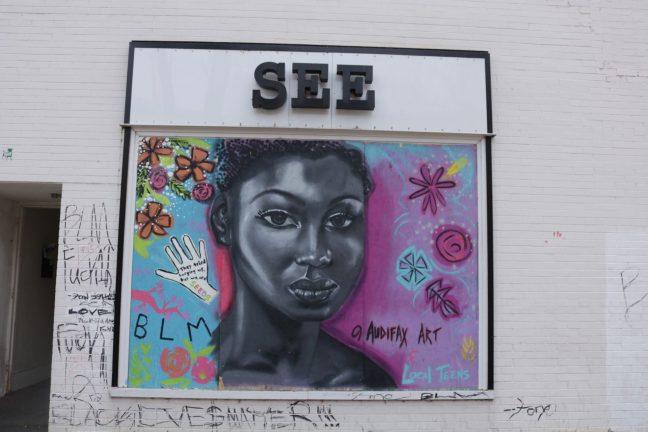Businesses near downtown Madison are removing plywood boards from their storefronts for the first time in months.
The plywood protection was installed last spring after demonstrations turned violent last May and more than 75 businesses were damaged and looted, according to the Madison Police Department website.
Social Impact Investment Director at the American Family Insurance Institute Nyra Jordan said the removal of these boards is symbolic of the change in Madison.
“I think it’s good because it’s a semblance of some kind of normalcy returning to the city,” Jordan said. “I hope we can start to bring life back to State Street.”
According to NPR, storefronts in major U.S. cities, such as Chicago, New York and Los Angeles, were boarded up for months as well.
Executive Director of Madison’s Central Business District Tiffany Kenney said it is bittersweet to see the plywood boards coming down.
Kenney said while she is happy storefronts will be able to show they are open for business, the art on many of the plywood boards served as a tool for conversation and unity over the past few months.
“I think many of the pieces of art are beautiful, important and powerful, but I’m also very happy for our small businesses,” Kenney said. “It’s been hard for them to balance being open and having the boards up at the same time. I have a lot of mixed feelings, as I’m sure a lot of people do, but I’m also happy to see they’re coming down.”
The American Family Insurance Institute created a book, “Let’s Talk About It,” which takes readers from the Capitol toward campus, showcasing various artwork on Madison storefronts.
According to Jordan, the company got the idea from Judge Everett Mitchell, who suggested American Family play their part and take leadership in preserving the art that had shown up near the capitol.
Judge Mitchell serves as Senior Pastor of Christ at the Solid Rock Baptist Church in Madison, which is the only Black church in Dane County which is open and affirming of those in the LGBTQ+ community, according to the APB Speakers website.
“We took that as a signal that the community trusted us to be a part of what was happening and we also didn’t take that trust lightly,” Jordan said. “We really started to have discussions with the city about how we could engage and what it meant for us to preserve some of those pieces of art, so that was how the book came about.”
Many of the property managers near the Capitol played an active role in creating the artwork covering various storefronts, according to Kenney.
Kenney also said this project served to remind residents of the transformative power of art, as business owners and artists alike came together to have an important discussion about race and equity.
“Artists were paid to put the art up with the permission of property owners, so there wasn’t one owner down there that didn’t want the art up,” Kenney said. “I think what I took away is that it was a strong community project. I learned how much our community can come together in times of trouble or misunderstanding and we can find some unity through artwork.”
Jordan said if she were a business owner, she would want to move forward but not forget what this community effort has done.
According to Jordan, “Let’s Talk About It” serves as a conversation starter amongst business owners as well as a point of reflection for various art pieces that appeared on storefronts.
“This was a moment but it was also reflective of a movement, and I think that part of that is also reengaging with the community,” Jordan said. “I think this book shows these businesses were a part of what has happened.”
According to the American Family Insurance website, American Family offered the mural artists access to a free business accelerator program for visual artists that helps them with copyright law, compensation models, mentorship, networking and other support.
Kenney said while the plywood boards may be coming down, the artwork has served as an important reminder of the community effort between the city, artists and business owners.
Jordan said she believes “Let’s Talk About It” will become a catalyst for conversation and a way to drive change within the community.
According to Jordan, art serves as a powerful tool for bringing people together. Though race and equity can be an uncomfortable topic to tackle, Jordan said she believes art provides a space to have a conversation about such ideas.
“Art as activism has an incredible way of bringing people together,” Jordan said. “I think these murals broke down barriers and it starts to bring you in to talk about what has happened.”


